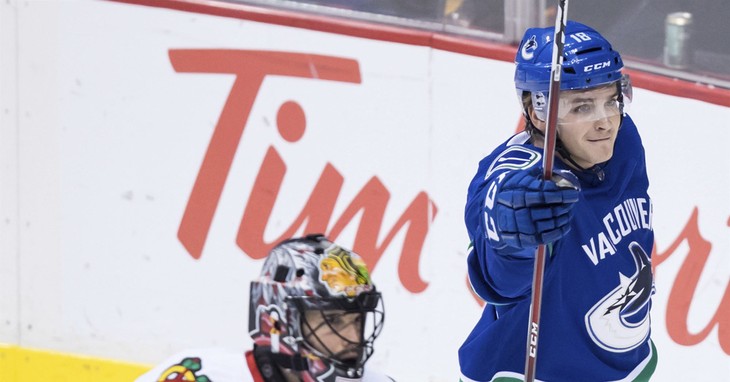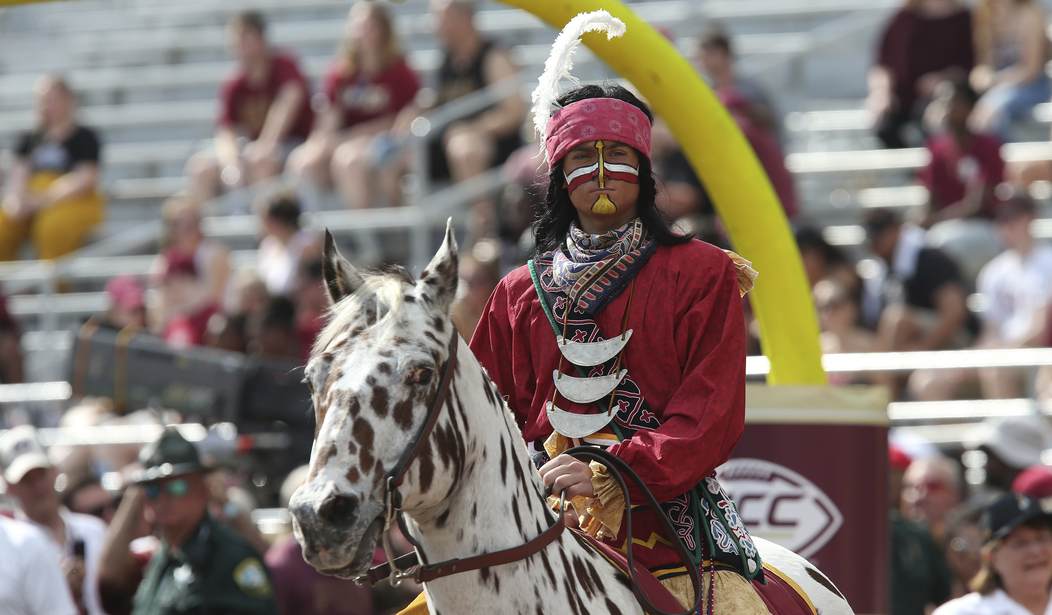Colorado public high schools that have not already ditched their Native American mascots may soon be fined $25,000 per month under Colorado Senate Bill 116. The bill states:
The presence and use of derogatory American Indian mascots across Colorado creates an unsafe learning environment for American Indian students by having serious negative impacts on those students’ mental health and by promoting bullying of American Indian students.
The law goes on to explain its definition of mascot.
“American Indian mascot” means a name, symbol, or image that depicts or refers to an American Indian tribe, individual, custom, or tradition that is used as a mascot, nickname, logo, letterhead, or team name for the school.
The Colorado Commission of Indian Affairs, which is in charge of enforcing the law, meets in May to decide the fate of schools on a list of those who have yet to comply. Those seven schools have mascots with the names “Savages,” “Indians,” and “Thunderbirds.”
The debate over such mascots has been raging for decades. PowWows.com, a site “where everyone can experience and explore Native American culture,” defined the two sides of the controversy.
Defenders of Native mascots often state their intention to honor Native Americans by referencing positive traits, such as a fighting spirit, bravery, toughness, or stoicism. Opposition groups, however, see these traits as part of a reductionist approach that leads to “savage” stereotyping of Native Americans.
Despite efforts dating back to the 1940s, Native American team names and mascots are still widely in use, with the Kansas City Chiefs, Chicago Blackhawks, and Atlanta Braves being prominent examples. Teams that have recently changed their names include the Washington Redskins, now the Washington Commanders, and the Cleveland Indians, now the Cleveland Guardians.

The issue might seem simple at first: if people are offended by a name, and/or consider the mascot racist, then that name should be replaced with something inoffensive, like a sexless narwhal.
People are offended by everything these days, though, so where do you draw the line? (RedState reported a few years ago that a team was considering dropping its “wasp” mascot because some could interpret it as referring to White Anglo-Saxon Protestant. Seriously.)
The Washington Post found out in 2016 that the issue is not so simple, when it conducted a poll of Native Americans regarding the moniker “Redskins”:
Across every demographic group, the vast majority of Native Americans say the team’s name does not offend them, including 80 percent who identify as politically liberal, 85 percent of college graduates, 90 percent of those enrolled in a tribe, 90 percent of non-football fans and 91 percent of those between the ages of 18 and 39.
Even 9 in 10 of those who have heard a great deal about the controversy say they are not bothered by the name.
What makes those attitudes more striking: The general public appears to object more strongly to the name than Indians do.
For that poll, the Post interviewed a Native American teacher. They reported:
She and many others surveyed embrace native imagery in sports because it offers them some measure of attention in a society where they are seldom represented. Just 8 percent of those canvassed say such depictions bother them.
That does not mean that all Native Americans like the mascots; in fact there are plenty of voices indicating that they find them demeaning, discriminatory and humiliating. From wernative.org:
I remember being 13 and feeling embarrassed when the crowd started doing ‘war calls’ or cutting the air with their hands as ‘tomahawks’. I didn’t know what this meant at the time, but I knew I wanted to crawl up inside myself and become smaller. I did not want it to be known that I was Native but felt like everyone in the stadium knew that we were, that there was a spotlight on me and my Native teammates; watching us to see our reactions.
It’s a complicated issue, and teams like the Kansas City Chiefs and Atlanta Braves are likely to face increasing scrutiny in the future.
It also begs the question, should it be the government forcing such change and imposing harsh fines? What about the First Amendment?
Congress shall make no law respecting an establishment of religion, or prohibiting the free exercise thereof; or abridging the freedom of speech, or of the press; or the right of the people peaceably to assemble, and to petition the government for a redress of grievances.
The Washington Redskins didn’t change their name because of a government law–they dropped it because they faced pressure from Native American organizations and many of their own sponsors.
If people are offended by a team name, they can protest. They can stop buying tickets. If enough people are putting pressure on the team, it will eventually have to bow to market forces and please its customers. If that means changing their mascot, then so be it.
It seems like overkill, however, to have the state government fining its own schools for not toeing the line.














Join the conversation as a VIP Member